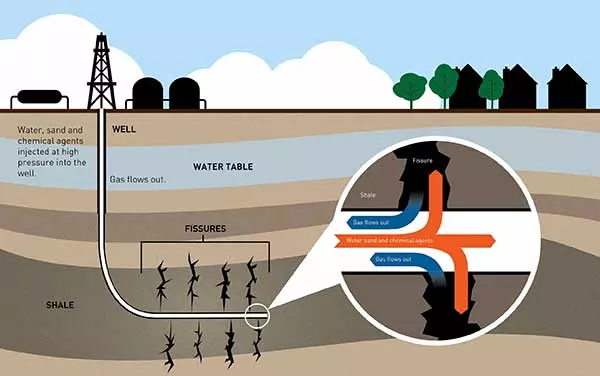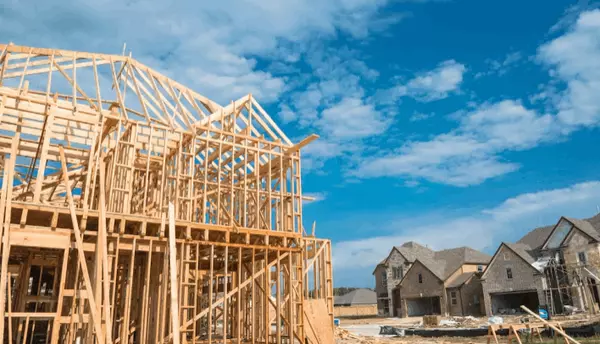WA State and Natural Gas...What is it, How does it work, and What are the changes

Everything You Need to Know About Using Gas in Your Home
Natural gas is a popular energy source for homes due to its efficiency, cost-effectiveness, and reliability. Understanding the uses, benefits, safety measures, and maintenance requirements for natural gas systems can help homeowners make the most of this versatile energy source.
What is Natural Gas?
Natural gas is a fossil fuel composed primarily of methane. It is extracted from underground reservoirs and transported through pipelines to homes and businesses. Once it reaches its destination, natural gas is used for heating, cooking, water heating, and powering various appliances.
Uses of Natural Gas in Homes
Heating:
- Furnaces and Boilers: Natural gas furnaces and boilers are common heating systems in homes. They are efficient, providing consistent heat throughout the winter months.
- Fireplaces: Gas fireplaces offer the ambiance of a wood-burning fireplace without the hassle of cleaning ash and managing wood.
Cooking:
- Stoves and Ovens: Gas stoves and ovens provide precise temperature control, making them a favorite among home cooks and professional chefs alike.
Water Heating:
- Tankless Water Heaters: These systems heat water on demand, providing an endless supply of hot water and saving energy.
- Traditional Water Heaters: Gas-powered water heaters are efficient and have a faster recovery rate than electric models.
Other Appliances:
- Dryers: Gas dryers are typically faster and more energy-efficient than electric dryers.
- Outdoor Grills: Many outdoor grills use natural gas, eliminating the need for propane tanks and providing a constant fuel supply.
Benefits of Using Natural Gas
- Cost-Effectiveness: Natural gas is generally cheaper than electricity, making it a cost-effective choice for heating and cooking.
- Efficiency: Natural gas appliances tend to be more efficient than their electric counterparts, reducing energy consumption and utility bills.
- Reliability: Natural gas supply is generally reliable, even during power outages, ensuring continuous operation of essential appliances.
- Environmental Impact: Natural gas burns cleaner than coal and oil, producing fewer pollutants and greenhouse gases. It is considered a more environmentally friendly fossil fuel.
Safety Measures for Using Natural Gas
Installation and Maintenance:
- Always hire licensed professionals for the installation and maintenance of gas appliances and systems. Proper installation ensures safety and efficiency.
- Schedule regular inspections and maintenance for your gas appliances to detect and fix any potential issues early.
Carbon Monoxide Detectors:
- Install carbon monoxide detectors in your home, especially near sleeping areas, to alert you to the presence of this dangerous gas.
Ventilation:
- Ensure that all gas appliances are properly ventilated to the outside to prevent the buildup of harmful gases inside your home.
Gas Leaks:
- Learn to recognize the signs of a gas leak, such as a rotten egg smell, hissing sounds, or dead vegetation around gas lines.
- If you suspect a gas leak, evacuate your home immediately and call your gas company or emergency services.
Maintenance Tips for Gas Appliances
Regular Inspections:
- Schedule annual inspections for your gas appliances, including furnaces, water heaters, and stoves, to ensure they are operating safely and efficiently.
Cleaning:
- Keep the burners and vents of your gas appliances clean to maintain efficient combustion and prevent buildup that could lead to malfunctions.
Repairs:
- Address any issues with your gas appliances promptly. Ignoring problems can lead to more significant issues and potential safety hazards.
How and What They Test For
When professionals test natural gas systems, they focus on several key areas to ensure safety and efficiency:
Leak Detection:
- Methods: Technicians use gas detectors and sensors to identify leaks. These devices can detect even small amounts of gas, ensuring early detection.
- Signs: Common signs of leaks include a rotten egg smell (due to the added odorant, mercaptan), hissing sounds near gas lines, and dead vegetation around the area.
Carbon Monoxide Testing:
- Devices: Carbon monoxide detectors measure the levels of CO in the air. Technicians also use combustion analyzers to test the efficiency of gas-burning appliances.
- Importance: CO is a colorless, odorless gas that can be deadly. Regular testing ensures that appliances are burning gas efficiently and not producing excessive CO.
Pressure Testing:
- Procedure: Technicians check the pressure of gas lines to ensure they are within safe operating ranges. Low pressure can indicate a leak or blockage, while high pressure can stress the system.
- Equipment: Manometers and other pressure gauges are used to measure gas pressure accurately.
Combustion Analysis:
- Purpose: Ensures that gas appliances are burning fuel efficiently, which reduces emissions and improves safety.
- Tools: Combustion analyzers measure the levels of oxygen, carbon monoxide, and other gases produced during combustion.
Proposed and Recent Changes to Washington State Laws Pertaining to Natural Gas
Washington State has seen several legislative changes that impact the use of natural gas, particularly in the context of climate policies and energy efficiency. One notable recent change is the introduction of a utility and natural gas bill aimed at capping carbon emissions and linking Washington's carbon market with those of California and Canada. This legislation is part of the broader Climate Commitment Act, which seeks to reduce greenhouse gas emissions across the state.
Additionally, there has been ongoing debate about transitioning away from natural gas in favor of electric alternatives to meet climate goals. While specific bans or restrictions on new natural gas installations in residential properties have not yet been enacted statewide, several local jurisdictions are considering or have implemented measures to limit natural gas use in new buildings.
These changes reflect Washington's commitment to reducing carbon emissions and promoting cleaner energy sources. Homeowners using natural gas should stay informed about these regulatory developments to ensure compliance and consider future-proofing their homes with more energy-efficient and environmentally friendly solutions.
Natural gas is a reliable, efficient, and cost-effective energy source for many homes. Understanding how to use and maintain gas appliances safely can help you take full advantage of this versatile energy option. By following proper safety measures and scheduling regular maintenance, you can enjoy the benefits of natural gas while ensuring the safety and efficiency of your home.
Tips You Don't Want to Miss
Maximize Your Gas Usage Efficiency:
- Regular Maintenance: Schedule annual inspections for all gas appliances to ensure they are functioning correctly and safely.
- Install Carbon Monoxide Detectors: Protect your family by installing carbon monoxide detectors near sleeping areas and other critical points in your home. ```html
- Furnaces and Boilers: Natural gas furnaces and boilers are common heating systems in homes. They are efficient, providing consistent heat throughout the winter months.
- Fireplaces: Gas fireplaces offer the ambiance of a wood-burning fireplace without the hassle of cleaning ash and managing wood.
- Stoves and Ovens: Gas stoves and ovens provide precise temperature control, making them a favorite among home cooks and professional chefs alike.
- Tankless Water Heaters: These systems heat water on demand, providing an endless supply of hot water and saving energy.
- Traditional Water Heaters: Gas-powered water heaters are efficient and have a faster recovery rate than electric models.
- Dryers: Gas dryers are typically faster and more energy-efficient than electric dryers.
- Outdoor Grills: Many outdoor grills use natural gas, eliminating the need for propane tanks and providing a constant fuel supply.
- Cost-Effectiveness: Natural gas is generally cheaper than electricity, making it a cost-effective choice for heating and cooking.
- Efficiency: Natural gas appliances tend to be more efficient than their electric counterparts, reducing energy consumption and utility bills.
- Reliability: Natural gas supply is generally reliable, even during power outages, ensuring continuous operation of essential appliances.
- Environmental Impact: Natural gas burns cleaner than coal and oil, producing fewer pollutants and greenhouse gases. It is considered a more environmentally friendly fossil fuel.
- Always hire licensed professionals for the installation and maintenance of gas appliances and systems. Proper installation ensures safety and efficiency.
- Schedule regular inspections and maintenance for your gas appliances to detect and fix any potential issues early.
- Install carbon monoxide detectors in your home, especially near sleeping areas, to alert you to the presence of this dangerous gas.
- Ensure that all gas appliances are properly ventilated to the outside to prevent the buildup of harmful gases inside your home.
- Learn to recognize the signs of a gas leak, such as a rotten egg smell, hissing sounds, or dead vegetation around gas lines.
- If you suspect a gas leak, evacuate your home immediately and call your gas company or emergency services.
- Schedule annual inspections for your gas appliances, including furnaces, water heaters, and stoves, to ensure they are operating safely and efficiently.
- Keep the burners and vents of your gas appliances clean to maintain efficient combustion and prevent buildup that could lead to malfunctions.
- Address any issues with your gas appliances promptly. Ignoring problems can lead to more significant issues and potential safety hazards.
- Methods: Technicians use gas detectors and sensors to identify leaks. These devices can detect even small amounts of gas, ensuring early detection.
- Signs: Common signs of leaks include a rotten egg smell (due to the added odorant, mercaptan), hissing sounds near gas lines, and dead vegetation around the area.
- Devices: Carbon monoxide detectors measure the levels of CO in the air. Technicians also use combustion analyzers to test the efficiency of gas-burning appliances.
- Importance: CO is a colorless, odorless gas that can be deadly. Regular testing ensures that appliances are burning gas efficiently and not producing excessive CO.
- Procedure: Technicians check the pressure of gas lines to ensure they are within safe operating ranges. Low pressure can indicate a leak or blockage, while high pressure can stress the system.
- Equipment: Manometers and other pressure gauges are used to measure gas pressure accurately.
- Purpose: Ensures that gas appliances are burning fuel efficiently, which reduces emissions and improves safety.
- Tools: Combustion analyzers measure the levels of oxygen, carbon monoxide, and other gases produced during combustion.
- Regular Maintenance: Schedule annual inspections for all gas appliances to ensure they are functioning correctly and safely.
- Install Carbon Monoxide Detectors: Protect your family by installing carbon monoxide detectors near sleeping areas and other critical points in your home.
Categories
- All Blogs (80)
- Agent (3)
- Appraisal (1)
- Buyers (23)
- Educational (4)
- Escrow (1)
- FHA (3)
- Financing (4)
- First time homebuyer (6)
- Home Buying Criteria (3)
- Homeowners (6)
- Loans (2)
- Market Conditions (19)
- Miscellaneous (4)
- Multiple Offers (2)
- NAR (1)
- Negotiation (2)
- Offers (2)
- School Districts (1)
- Sellers (28)
- Selling (32)
- Staging (3)
- Tips (11)
- Title (1)
- Utilities (4)
- Videos (1)
Recent Posts










GET MORE INFORMATION


